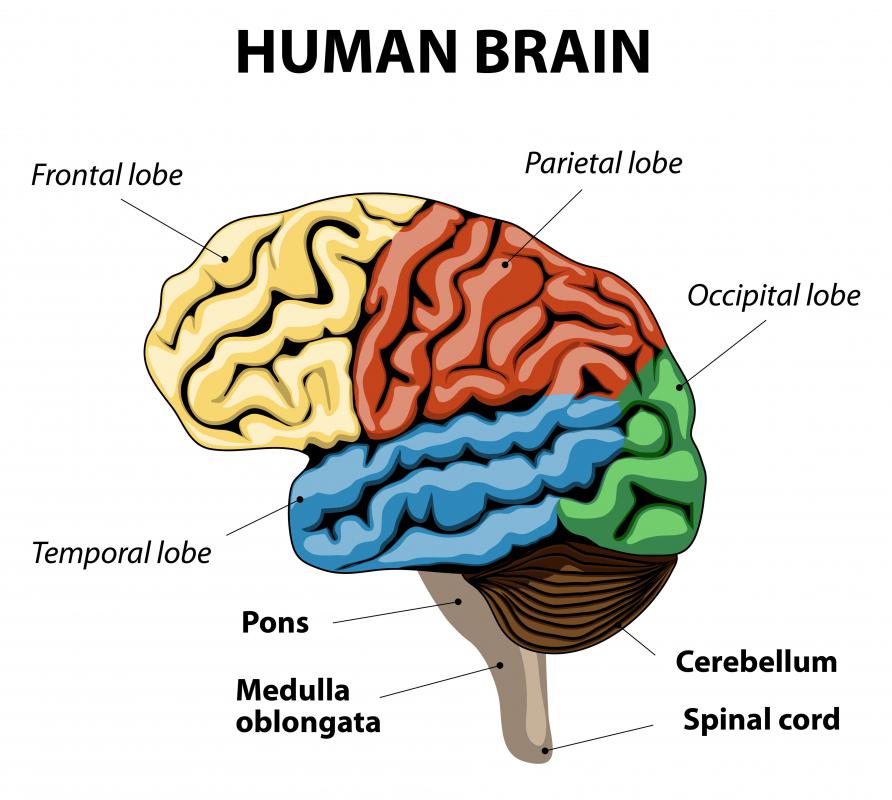At TheHealthBoard, we're committed to delivering accurate, trustworthy information. Our expert-authored content is rigorously fact-checked and sourced from credible authorities. Discover how we uphold the highest standards in providing you with reliable knowledge.
What is Acalculia?
Acalculia is a term derived from the Greek letter A, which means "not," and the Latin word calculare, which means "to count." The phrase describes an acquired disorder affecting a person’s ability to perform basic mathematical functions. This disorder is usually caused by a stroke, tumor, or trauma, and is often associated with dementia. Dyscalculia is a similar disorder affecting mathematical ability, but it is distinguished from acalculia because it is a developmental disorder that impairs the acquisition of mathematical skills during the childhood years.
The specific impairments in patients with acalculia vary to a certain degree, but several major symptoms are usually present. Patients will often show difficulty counting forward and backward, and will lack basic numerical knowledge, such as how many weeks are in a year. There will often be significant difficulty in transcribing between numbers written out in word form and those written in numerical form, in reading and writing numbers with different levels of complexity, and in comparing the magnitude of two numbers to determine which one is larger or smaller. The greatest difficulty may be observed with performing mathematical operations, and patients may be unable to interpret simple mathematical signs. Patients may even show the inability to align numbers in columns.

This disorder is occasionally detected in its primary form, which is a basic defect in computational ability, but is more frequently encountered as a group of neurological symptoms that are collectively referred to as Gerstmann syndrome. In addition to acalculia, the core symptoms of Gerstmann syndrome include the inability to express oneself verbally, called agraphia; problems identifying right from left, called left-right confusion; and difficulty distinguishing among the fingers of one’s own hand and/or the inability to detect to which finger a touch stimuli has been applied in the absence of a visual cue, called finger agnosia. Gerstmann syndrome is usually associated with damage to the angular gyrus of the left parietal lobe of the brain, which can result from bleeding during a stroke or traumatic head injury, viral encephalitis, a tumor, or exposure to toxins.

The prognosis for acalculia varies depending on several factors, including the severity of the symptoms and the cause of the disorder. Treatment is often aimed at caring for the pathology that initiated the disorder, such as stroke or viral infections; both acalculia and the other symptoms associated with Gerstmann syndrome may, therefore, diminish as treatment progresses. Recovery related to primary acalculia is usually limited and is instead aimed at managing symptoms. A long-term rehabilitation program that includes multiple activities that progress from rather simple, such as counting real objects, to more complex activities, such as the use of mathematical operations, has shown overall improvement in the mathematical skills of afflicted patients.
AS FEATURED ON:
AS FEATURED ON:














Discuss this Article
Post your comments